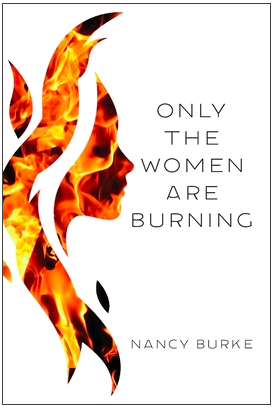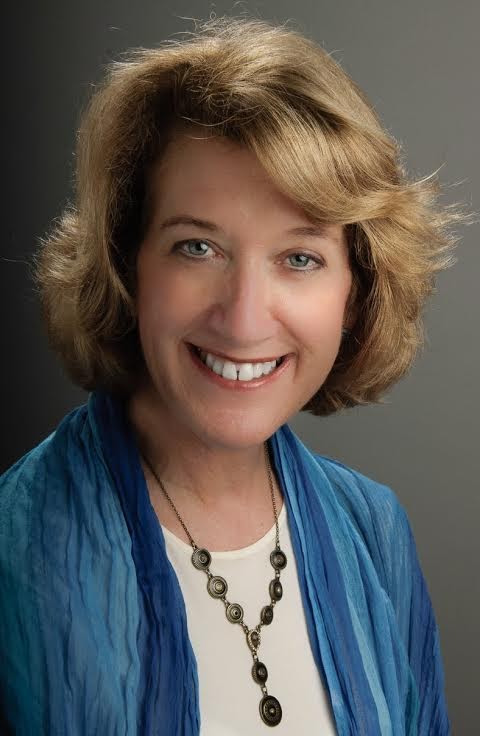FOR IMMEDIATE RELEASE:
Women are dying, and they aren’t going gently: A former anthropologist must investigate the roots of feminine spontaneous combustion in this incisive release
 MONTCLAIR, New Jersey — How often have women fought against their invisibility? How often have they found a way to be seen by a society that rejects them? The 1975 Icelandic women’s strike, lesbian activists storming the BBC in May 1998, and the contemporary #MeToo movement represent an outcry from women who have had enough. But what if the precarious position of women led not to an outcry or protest, but to another more devastating expulsion of energy?
MONTCLAIR, New Jersey — How often have women fought against their invisibility? How often have they found a way to be seen by a society that rejects them? The 1975 Icelandic women’s strike, lesbian activists storming the BBC in May 1998, and the contemporary #MeToo movement represent an outcry from women who have had enough. But what if the precarious position of women led not to an outcry or protest, but to another more devastating expulsion of energy?
In Nancy Burke’s “Only the Women are Burning” (Apprentice House Press, October 1, 2020) three women are eclipsed by flames in a single morning, one at a commuter train, one at a school, one while walking her dog in the woods. The authorities decide the burning women are members of a cult, but when Cassandra learns her former best friend died in the fiery phenomenon she refuses to accept that explanation. A mom and former anthropologist, Cassandra finds herself wrapped up in the mystery of these fiery deaths, searching for a solution. As she delves into this strange episode in her once safe suburban New Jersey town, she must also face some buried truths of her own.
Part mystery, part science fiction, part suburban domestic novel, Burke’s “Only the Women are Burning” asks important questions about women in contemporary suburban lives. Fans of Margaret Atwood, Naomi Alderman, Meg Wolitzer, and Rebecca Solnit will enjoy this striking novel for both its poetic prose and the biting social commentary within.
More about Only the Women Are Burning
“It’s rare when a story folds facts into an emotional roller-coaster but this novel hits the mark
… all told in vibrant prose with poetic edges.”
— Julie Maloney, award-winning author of A Matter of Chance and Director of
Women Reading Aloud, an international writing program for women
“Only the Women are Burning”
Nancy Burke | October 1, 2020 | Apprentice House Press | Mystery / Women Sleuths Paperback | 9781627202893 | $18.99
 ABOUT THE AUTHOR
ABOUT THE AUTHOR
NANCY BURKE is author of From the Abuelas’ Window (2006), If I Could Paint the Moon Black (2014) and her forthcoming novel, Only the Women are Burning (Apprentice House Press, 2020). Her short story, “At the Pool” is a finalist in the 2020 J.F. Powers Prize for Short Fiction. Her short fiction “He Briefly Thought of Tadpoles” appeared in Meat for Tea and “The Last Day” appeared in Pilgrim: A Journal of Catholic Experience. She was born and bred in New Jersey, in a large Irish family. Her most joyful undertaking: successfully raising her three daughters. Her passion: writing. To learn more about Nancy’s life and work, visit: http://www.nancyburkestories.com
In an interview, Nancy can discuss:
- Where the idea for this book came from
- The important cultural and sociological nuances the book addresses
- Writing the story of a female sleuth, and constructing the puzzle that she must solve
- Reasons why readers of all genders should pick up this book
- How her work blends elements of multiple genres: mystery/suspense, science-fiction, domestic fiction, fabulism, feminist literature
- Whether readers can expect to see more from Cassandra in the future
An Interview with Nancy Burke
1. How long have you been working on “Only the Women are Burning,” and where did your idea for the book originate from?
The idea of women bursting into flame came to me nearly two decades ago out of the blue while I was sitting under an elm tree at my swim club. It poured onto the page like this: “The women began to spontaneously ignite, bodies bursting into miniature mountains of flame as they went about their usual daily routines.” I think it came from deep within, from a burning intellectual energy that couldn’t find a channel for release so just exploded in flame. I must have been feeling an intense need to do something else while I was raising my kids, but I hadn’t found it.
2. In writing this novel, were you inspired by other works of feminist literature, or by other female sleuths? How do you hope readers perceive Cassandra?
I have to dig way back into my reading lists for this question. I read Drinking the Rain by Alix Kates Shulman which was published in 1995 about five years before I started this work. A passage in there stays with me to this day, about the author’s husband who wanted her to co-sign a business loan, but she refused to risk her own financial well-being for his business idea. There was a distinct lesson in that about women and choice that was important beyond the usual issue of abortion. There were many, perhaps not outright feminist books, but with a consciousness raising influence. Margaret Atwood is a distinctly strong influence. I am a recent discoverer of Rebecca Solnit’s work. I’m listening to Recollections of My Non-existence right now.
I laugh, but I was a big Nancy Drew fan as a kid. Mary Stewart’s novels were also a big part of my reading life as a young teen. I particularly remember The Moon Spinners, about a girl who accompanies her anthropologist aunt to the Greek Isles and solves a mystery. And, I love listening to Tana French’s Irish detective stories on audiobook.
I first developed Cassandra into an unreliable narrator by giving her obsessive-compulsive tendencies. But I didn’t want there to be anything the authorities would use as excuses to not believe her, so she became a mom with a part-time job who was brilliant and well-educated but had no way to channel her brilliance. It took some time for her to emerge as a strong woman who should be listened to even though nobody does. Cassandra, the Greek prophetess has the gift of sight, but Apollo put a curse on her so nobody would believe her prophecies. I want readers to recognize that she (and they) deserve to be listened to because women know things in a different way than men do.
3. Religious imagery adds another dimension to this story. Can you describe the addition of that, and what it signifies to you?
Two women will be grinding at the mill. One will be taken; the other spared. It’s from the Gospel of Matthew. Why one woman and not the other? Who we are and what we believe helps us to explain the unexplainable and gives us a sense that there is something we can do to change an outcome or ward off evil. If you study anthropology, which I did as an undergrad, you can see how mythology and religion were the first science. Cassandra is an anthropologist and is acutely aware that people process life and death and hardship in particular religious ways. She acknowledges it, but that in no way requires her to accept other’s system of believing. It’s called tolerance. We need more of that.
4. Can you outline some of the cultural and sociological topics this novel addresses?
Only the Women are Burning is a smorgasbord of interrelated topics so I can see why this question is important. Let’s see if I can outline them.
A. Family of origin can be supportive, but often is not when your dreams are inconsistent with family expectations.
B. Sisterhood is a mixed bag of love and disdain, shame and competition.
C. Marriage is sometimes undertaken with expectations that do not match, but you often can’t see that until you’re way in.
D. Education, and goals are extremely important, but women often abandon theirs because some choices (marriage/family/career) are mutually exclusive even if they at first don’t appear to be.
E. Women need each other for support and friendship always.
F. Motherhood is one of the most difficult jobs you can love to have. Women abdicate to the demands of the role because they love their babies/children more than anything including themselves. We miss our former selves.
G. Women really are still very much misunderstood by the men in their lives – as a species, and as individuals onto themselves (and not simply accessories to the man’s life).
H. There are still men who hide their homosexuality inside marriage despite the acceptance of LGBTQ by society. They can’t accept it in themselves due to upbringing and their definition of what it means to be a man.
I. Environmental contamination, climate change, invisible radiation contamination are present in our world and harm us.
J. Self-help groups, self-care, yoga, meditation, medication, drugs, alcohol, self-destructive behaviors are some of the ways we channel the energy inside and help it find a path toward expression. Be careful what you choose.
K. Abortion – don’t miss this one. It’s in the conversation with Phoebe.
L. Own your authority and never let anyone silence you.
5. What do you hope readers will take away from “Only the Women are Burning”?
This is the takeaway… Cassandra has an arcane collection of scientific knowledge accumulated over a lifetime of exploration and inquiry, relationships that succeed or fail; she’s made choices for better or for worse. All of these things allow her to know things in ways the authorities investigating the fires couldn’t possibly know. Only her professor who gave her the ring believed in her. We can all name someone who did that for us. Like Cassandra, I want my readers to find theirs, twirl that imaginary ring, and never let anyone silence or sideline you because your existence and brilliance is inconvenient. Only you can insist on your own truth.

A former award-winning journalist with national exposure, Marissa now oversees the day-to-day operation of the Books Forward author branding and book marketing firm, along with our indie publishing support sister company Books Fluent.
Born and bred in Louisiana, currently living in New Orleans, she has lived and developed a strong base for our company and authors in Chicago and Nashville. Her journalism work has appeared in USA Today, National Geographic and other major publications. She is now interviewed by media on best practices for book marketing.

